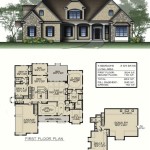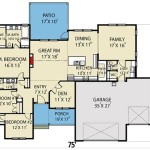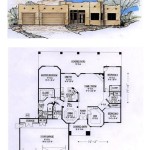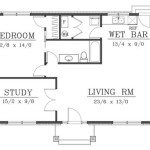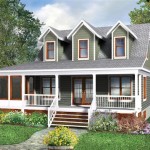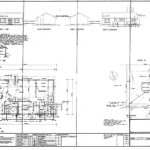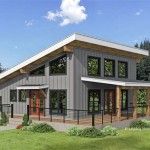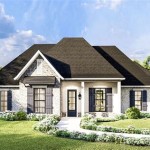Old Style Craftsman House Plans: A Timeless Architectural Gem
Craftsman-style architecture, characterized by its emphasis on natural materials, simple lines, and organic forms, has captured the hearts of homeowners for over a century. These charming houses exude a sense of warmth and livability, making them ideal for those seeking a timeless and inviting home.
Origins and History
The Craftsman style emerged in the late 19th century as part of the American Arts and Crafts movement, which promoted a return to traditional craftsmanship and the use of natural materials. Inspired by the designs of architects such as Gustav Stickley and Charles and Henry Greene, Craftsman houses quickly gained popularity in California and spread throughout the nation.
Key Features of Craftsman House Plans
Craftsman house plans are distinguished by their signature characteristics:
- Low-Pitched Roofs: Wide, overhanging eaves create a sheltering and welcoming appearance.
- Exposed Rafters: Structural rafters are often left exposed, adding visual interest and a rustic touch.
- Natural Materials: Wood, stone, and brick are commonly used, emphasizing the connection with nature.
- Simple Lines: Clean lines and geometric shapes create a sense of order and balance.
- Built-In Features: Custom-crafted built-ins, such as bookshelves, window seats, and cabinets, add both functionality and charm.
Modern Adaptations of Craftsman House Plans
While the classic Craftsman style remains popular, contemporary architects have adapted the design to suit modern lifestyles and tastes:
- Open Floor Plans: Open layouts maximize space and create a more seamless flow between rooms.
- Large Windows: Generous windows flood the home with natural light and provide beautiful views of the outdoors.
- Sustainable Features: Modern Craftsman house plans may incorporate energy-efficient appliances, solar panels, and recycled materials.
Advantages of Old Style Craftsman House Plans
Choosing an Old Style Craftsman house plan offers several benefits:
- Timeless Appeal: The classic design ensures that your home will retain its beauty and value for years to come.
- Natural Charm: The use of natural materials creates a warm and inviting atmosphere that connects you with the outdoors.
- Customization: Craftsman house plans can be easily customized to suit your specific needs and preferences.
- Durability: The sturdy construction and durable materials ensure longevity and low maintenance.
Finding the Right House Plan
With numerous Old Style Craftsman house plans available, finding the perfect one for your needs can be challenging. Consider the following tips:
- Determine Your Size and Style: Start by determining the size and style of home you desire.
- Research Architects and Designers: Seek out reputable architects and designers who specialize in Craftsman-style architecture.
- Review Portfolio: Study the portfolios of different architects and designers to get a sense of their design aesthetic.
- Get Personalized Advice: Consult with an architect or designer to discuss your specific needs and ideas.
Building a home based on Old Style Craftsman house plans is an investment in both beauty and timeless value. By embracing the charm, simplicity, and natural elements of Craftsman architecture, you can create a home that is both elegant and inviting.

Plan No R 856 C 1918 Cottage House By A E Stillwell Vintage Bungalows Plans Transitio Bungalow Floor

1922 Craftsman Style Bunglow House Plan No L 114 E W Stillwell Co Bungalow Floor Plans

Craftsman Style Bungalow House Plans Vintage Residential Architecture Of The

1925 26 C L Bowes House Plans Craftsman Bungalow Vintage

Classic 1918 Craftsman Style Bungalow Design Shingled Cottage House Plans

Craftsman House Plans Home Floor Monster
:max_bytes(150000):strip_icc()/SL-1873_FCP-8cf5801247c34df0b8bd839eeea78d4d.jpg?strip=all)
20 Craftsman Style House Plans We Can T Get Enough Of

Northwest Craftsman House Plan Seattle Vintage Houses 1908 Western Home Builder Design No 43 V W Voorhees

Sears Craftsman Style House Modern Home 264b240 The Corona 1916 Bungalow Plan

1923 Craftsman Style Bungalow The Irving By Standard Homes Company House Plans Of 1920s With S Floor

